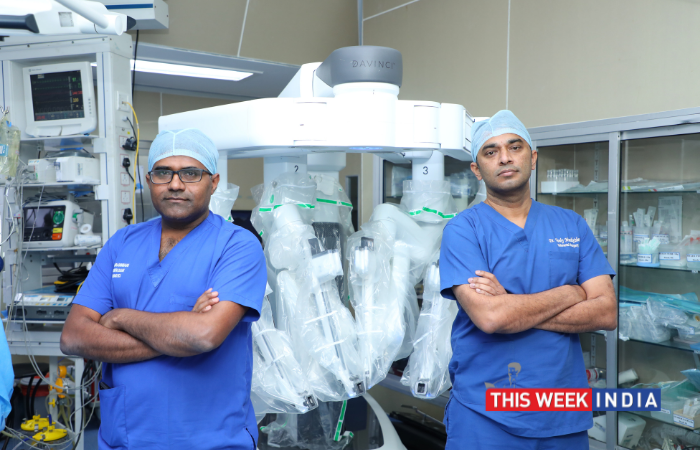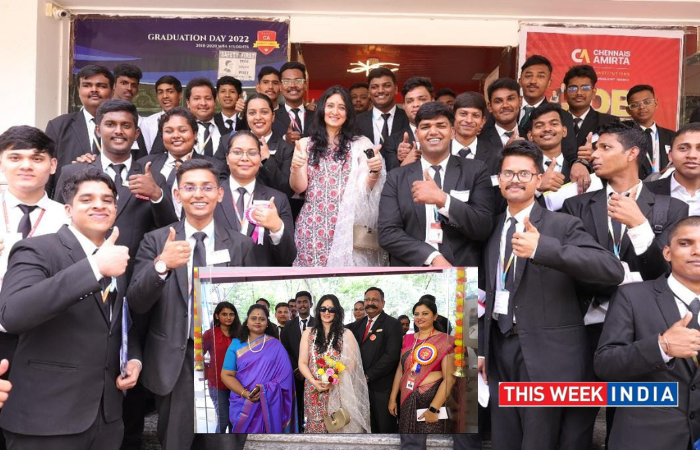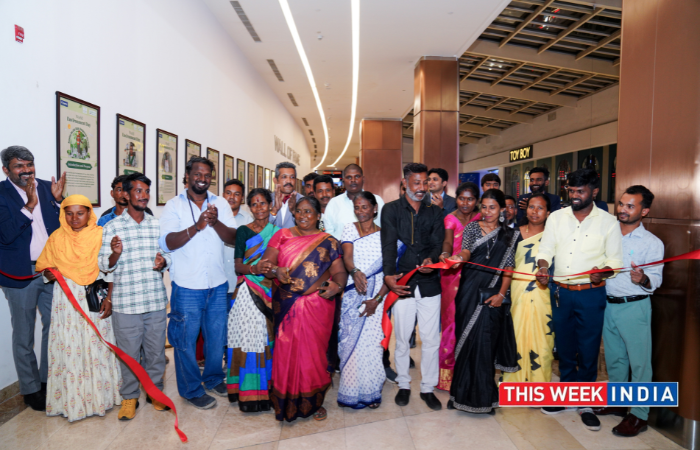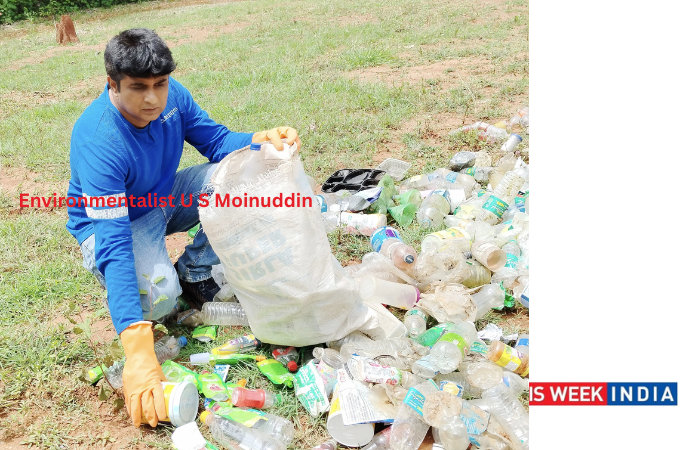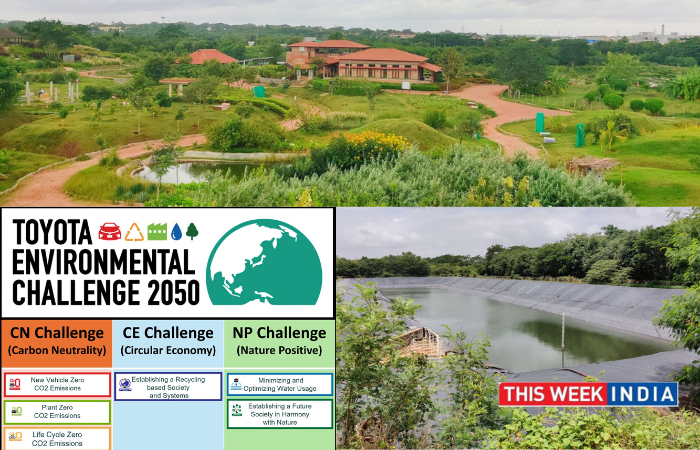Offers Advanced Robotic Surgery Treatment for Colorectal Cancers in Karnataka by Specialized Surgeons
Bengaluru, 13th January 2022: With the objective of showcasing unparalleled expertise, Apollo Cancer Centres (ACC), ranked as the best private cancer hospital in India, held a Live Interactive Robotic Colorectal Surgery workshop in Bengaluru, Karnataka. The first ever Live Surgery workshop was performed by Dr. Narasimhaiah Srinivasaiah, MD, MRCS, FRCS, FEBS, Senior Consultant – Colorectal Oncology and Robotic Surgery, Apollo Cancer Centre, Bengaluru and Dr. Venkatesh Munikrishnan, MBBS, MRCS, FRCS, Senior Consultant -Colorectal Surgery, Apollo Hospitals, Chennai. The Interactive workshop showcased specialised expertise by Apollo’s experienced surgeons who have performed highest number of Robotic Colorectal Surgeries in India.
The Low Anterior Resection with a possible defunctioning Loop Ileostomy was performed under the guidance of Dr. Venkatesh Munikrishnan, credited with highest robotic colorectal surgeries in India and by Dr. Narasimhaiah Srinivasaiah. The Patient was a 30 year old male from Hoogli, with rectal symptoms and mid Rectal Locally advanced Cancer. The cancer was mutinous with signet cells. After a thorough discussion of his condition at the tumour board, he underwent sperm preservation and short course of radiotherapy and 3 cycles of chemotherapy.
Commenting on the successful surgery, Dr. Narasimhaiah Srinivasaiah, MD, MRCS, FRCS, FEBS, Senior Consultant – Colorectal Oncology and Robotic Surgery, Apollo Cancer Centre, Bengaluru said, “The surgery performed on the patient was delicate and complex given the rectal symptoms and progression to an advanced stage. The mutinous and signet cells posed another challenge for his treatment. In this case, we held Tumour Board to decide on right approach and treatment for the patient. At Apollo, we have advanced Robot Assisted surgery that involves minimal invasive techniques that result in faster recovery and shorter hospital stays following the treatment. At the heart of each treatment, we ensure that our patient has complete care and support throughout the recovery.”
Commenting on the advanced robotic surgery for colorectal cancer, Dr. Venkatesh Munikrishnan, MBBS, MRCS, FRCS, Senior Consultant -Colorectal Surgery, Apollo Hospitals, Chennai, said “One of the biggest challenge for any cancer is identifying it at an early stage to treat it before it progresses to advanced stages. With my experience and expertise in colorectal surgeries, I would encourage all patients to pay clear attention to symptoms and consult with right oncologists to ensure proper treatment and faster recovery. From diagnosis to treatment, in this case, the patient was well informed and there was constant communication between surgeons to ensure smooth performance of surgery. As advancements take the front seat in medical treatments, I can assure you that the precision and recovery from a robot-assisted surgery is better and less traumatic which means less blood loss and less overall discomfort for the patient. At Apollo Cancer Centres, we perform complex to delicate procedures seamlessly keeping in mind the needs of our patients.”
Commenting on the occasion, Mr. Davison PK, CEO, Apollo Hospitals, Karnataka region, “With technological advancements in medical industry in India, I take pride in stating that first Live Interactive Robotic Colorectal Surgery workshop in Karnataka was held at Apollo Cancer Centres Bengaluru. Being a First dedicated colorectal Oncology unit in Bengaluru, we offer specialized units and advanced technology to help our doctors treat patients better. In line with our mission, we are constantly adding onto our portfolio of treatments to offer maximum support and comfort to the patients who put their trust in us.”
The Live Interactive surgery workshop was also attended virtually by over 500 doctors from across the country, ranging from oncologists to Proctologists. The senior doctors from reputed hospitals from over 15 countries also took a part in the interactive workshop. The response from the medical community was encouraging, appreciative, and there was a good dialogue and interaction that occurred during the workshop.

